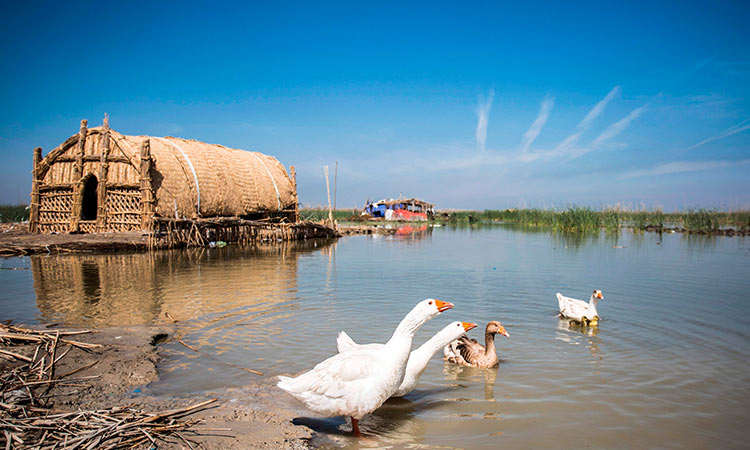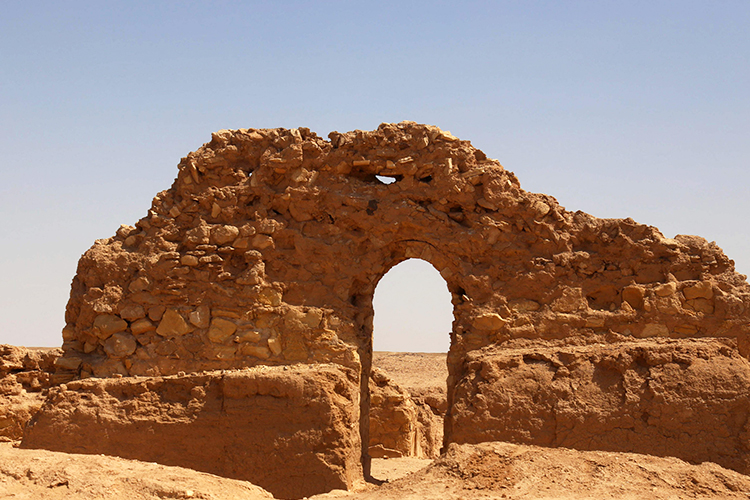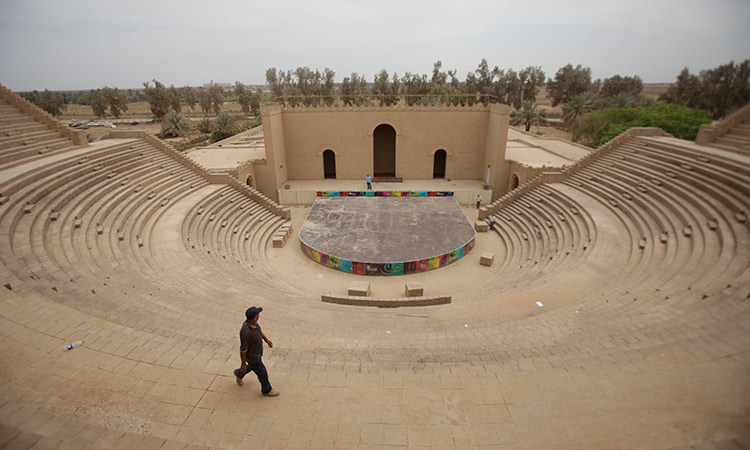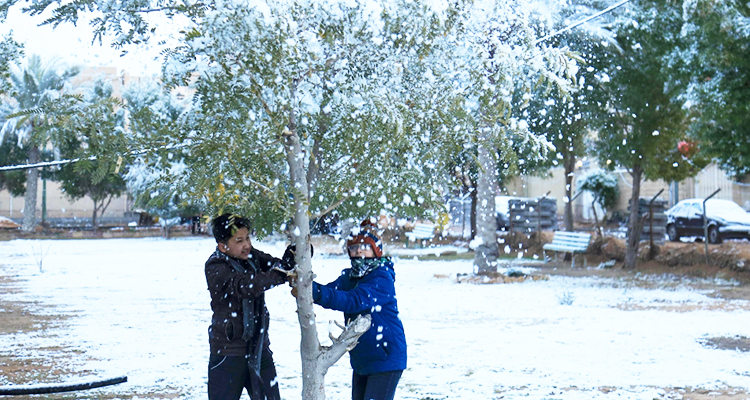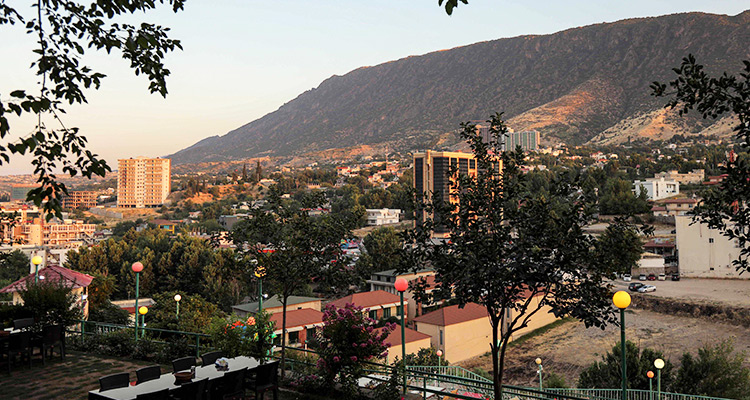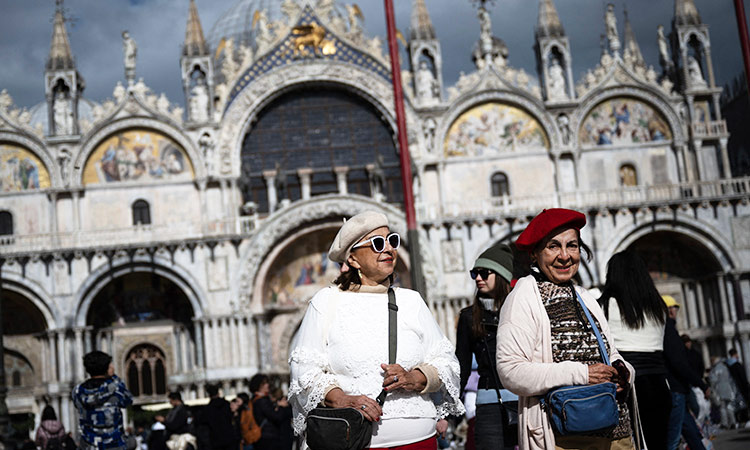Marshes are blossoming in Iraq once again
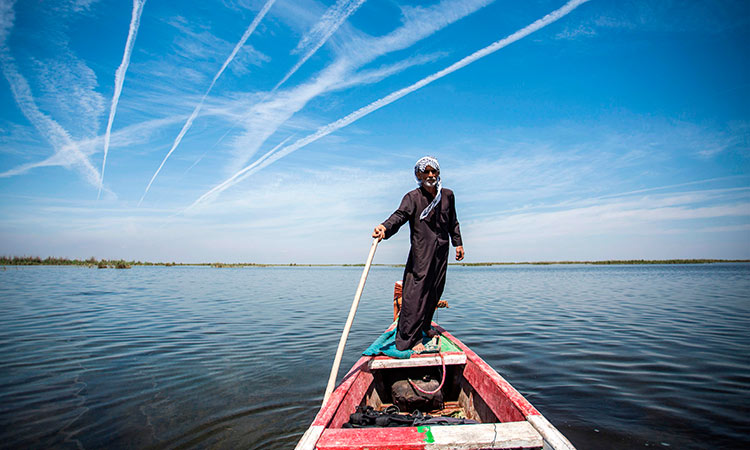
Abu Hayder, an Iraqi ecotourism guide, navigates a canoe in the marshes of Iraq. Hussein Faleh/AFP
After thirty years Iraq's southern marshes are blossoming once more thanks to a wave of ecotourists picnicking and paddling down their replenished river bends.
A one-room homemade of elaborately woven palm reeds floats on the river surface. Near it, a soft plume of smoke curls up from a firepit where carp is being grilled, Iraqi-style.
"I didn't think I would find somewhere so beautiful, and such a body of water in Iraq," said Habib al-Jurani.
He left Iraq in 1990 for the United States, and was back in his ancestral homeland for a family visit.
"I didn't think I would find somewhere so beautiful, and such a body of water in Iraq,
"Most people don't know what Iraq is really like — they think it's the world's most dangerous place, with nothing but killings and terrorism," he said.
Looking around the lush marshes, declared in 2016 to be Iraq's fifth UNESCO World Heritage site, Jurani added: "There are some mesmerising places."
Turtles and tourists
It all culminated with a particularly dry winter last year that left the "ahwar", as they are known in Arabic, painfully parched.
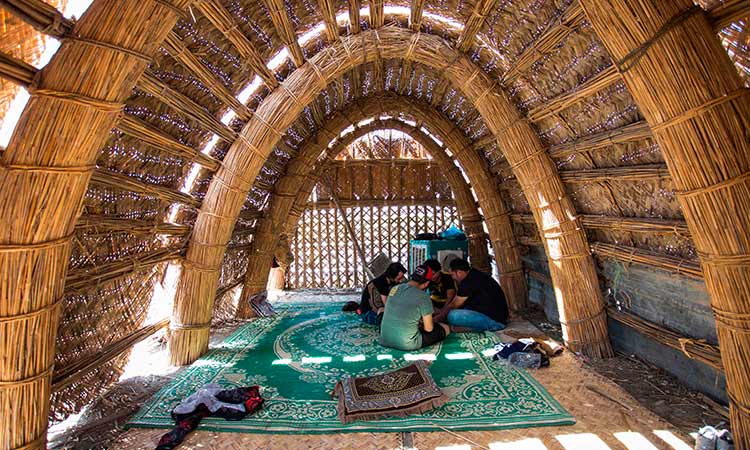
Tourists sitting inside a floating palm reed-woven house in the marshes of the southern Iraqi district of Chibayish in Dhi Qar province. Hussein Faleh/AFP
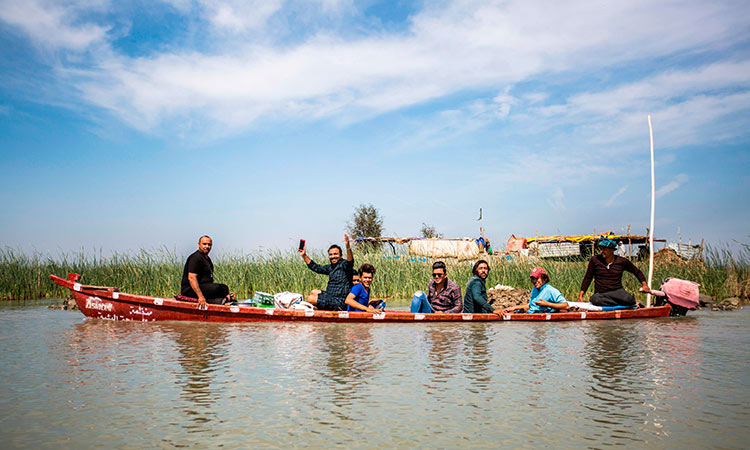
Tourists sit in a canoe as they are shown around the marshes in Iraq. Hussein Faleh/AFP
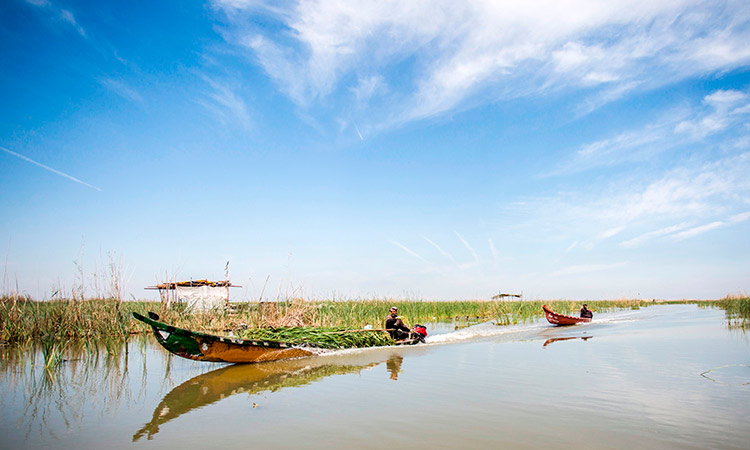
Iraqi marsh-dwellers navigate their canoes in the marshes. Hussein Faleh/AFP
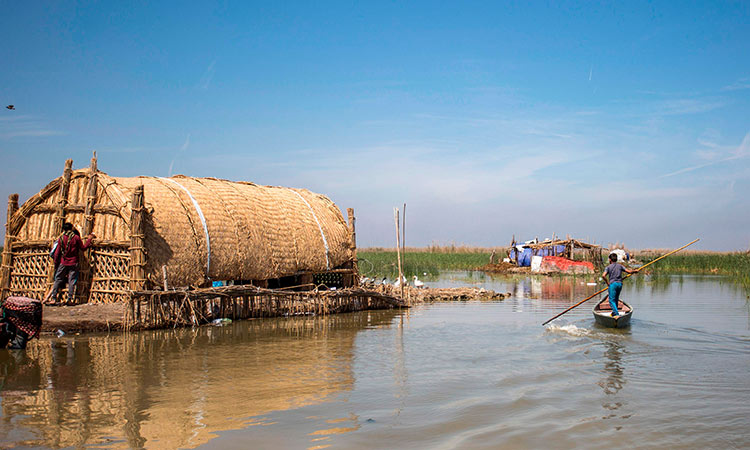
A floating palm reed-woven house for tourists. Hussein Faleh/AFP
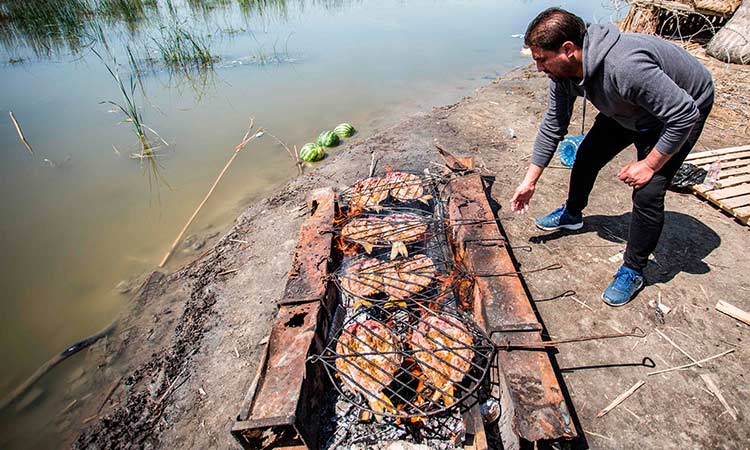
An Iraqi tourist grills fish by the marshes. Hussein Faleh/AFP
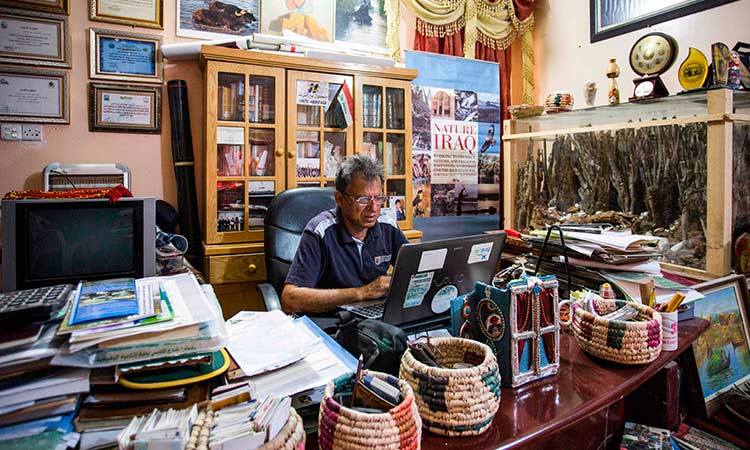
Jassim al-Assadi, director of Nature Iraq, sits at his office. Hussein Faleh/AFP
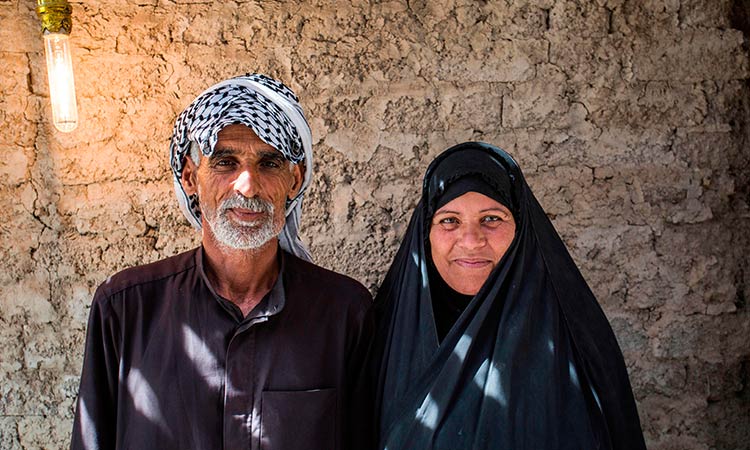
Abu Hayder, an Iraqi ecotourism guide, poses for a picture with his wife. Hussein Faleh/AFP
But heavier rains this year have filled more than 80 percent of the marshes' surface area, according to the United Nations, compared to just 27 percent last year.
That has resurrected the ancient lifestyle that dominated this area for more than 5,000 years.
"The water returned, and with it normal life," said 35-year-old Mehdi al-Mayali, who raises water buffalo and sells their milk, used to make rich cream served at Iraqi breakfasts.
Wildlife including the vulnerable smooth-coated otter, Euphrates softshell turtles, and Basra reed warbler have returned to the marshlands — along with the pickiest of all species: tourists.
"Ecotourism has revived the 'ahwar'. There are Iraqis from different provinces and some foreigners," Mayali said.
A day in the marshes typically involves hiring a resident to paddle a large reed raft down the river for around $25 — not a cheap fare for Iraq.
Then, lunch in a "mudhif" or guesthouse, also run by locals.
"Ecotourism is an important source of revenue for those native to the marshes," said Jassim al-Assadi, who heads Nature Iraq.
Geese swimming in the marshes of the southern Iraq.
Long way to row
The numbers have steadily gone up in recent years, according to Assaad al-Qarghouli, tourism chief in Iraq's southern province of Dhi Qar.
"We had 10,000 tourists in 2016, then 12,000 in 2017 and 18,000 in 2018," he told AFP.
"There are no tourist centres or hotels, because the state budget was sucked up by war the last few years," Qarghouli said.
Iraq's government declared victory in late 2017 and has slowly begun reallocating resources to infrastructure projects.
Qarghouli said the marshes should be a priority, and called on the government to build "a hotel complex and touristic eco-village inside the marshes."
Peak season for tourists is between September and April, avoiding the summer months of Iraq when temperatures can reach a stifling 50 degrees Celsius (122 degrees Fahrenheit).
These dynamics have already damaged the marshes' fragile ecosystem, with high levels of salination last year killing fish and forcing other wildlife to migrate.
Jurani, the returning expatriate, has an idea of the solution.
"Adventurers and nature-lovers," he said, hopefully.
Agence France-Presse
